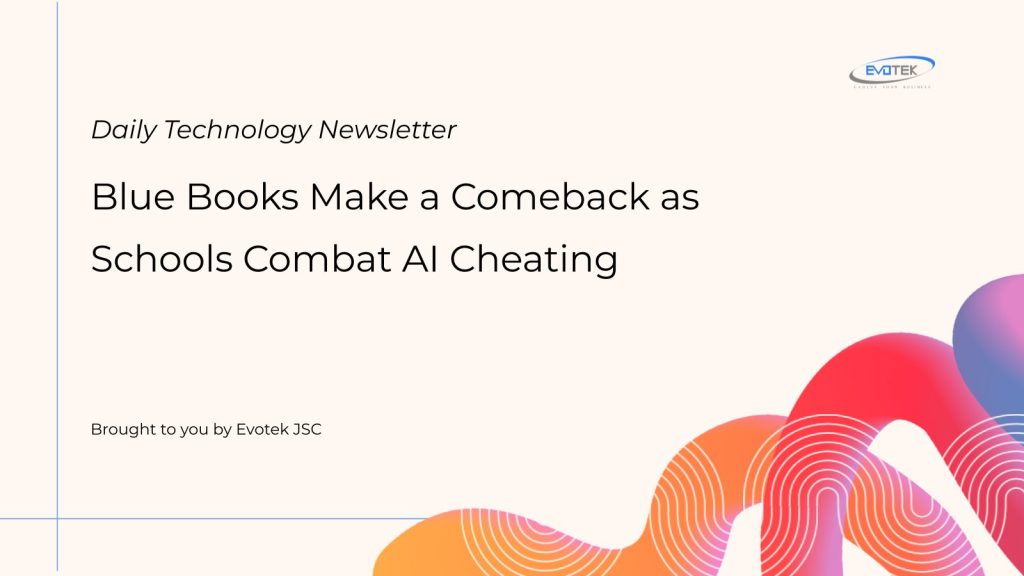The rise of AI tools like ChatGPT has led to a surge in academic dishonesty, prompting some schools to return to traditional methods of assessment.
In an effort to combat AI-driven cheating, educators across America are increasingly turning to a familiar tool: the blue book. The Wall Street Journal reports a significant increase in blue book sales, with universities like Texas A&M, University of Florida, and UC Berkeley seeing substantial growth since ChatGPT’s emergence in late 2022.
A Blast from the Past
For those who attended school before the widespread adoption of AI, blue books evoke memories of frantic essay writing under pressure. These booklets, once seen as relics of a bygone era, are now being reconsidered as a defense against algorithm-assisted cheating.
Roaring Spring Paper Products, a major blue book supplier, acknowledges that the AI era has unexpectedly boosted their business.
The Pen Is Mightier Than the Algorithm?
While the return of blue books signals a step towards academic integrity, it’s not a complete solution. Philip D. Bunn, an assistant professor at Covenant College in Georgia, argues that in-class essays cannot fully replace the traditional research paper, which fosters deeper analytical and research skills.
Surveys indicate that AI cheating remains rampant, with a large percentage of college students admitting to using ChatGPT for assignments. Moreover, AI detection tools are often unreliable.
The Future of Education in the Age of AI
The resurgence of blue books highlights the challenges educators face in maintaining academic standards in the age of AI. Addressing the issue may require more comprehensive measures, including new regulations and a fundamental shift in how students perceive the value of education.
It seems that in the fight against AI-driven academic dishonesty, sometimes, old-school methods offer a glimmer of hope.

 日本語
日本語 한국어
한국어 Tiếng Việt
Tiếng Việt 简体中文
简体中文